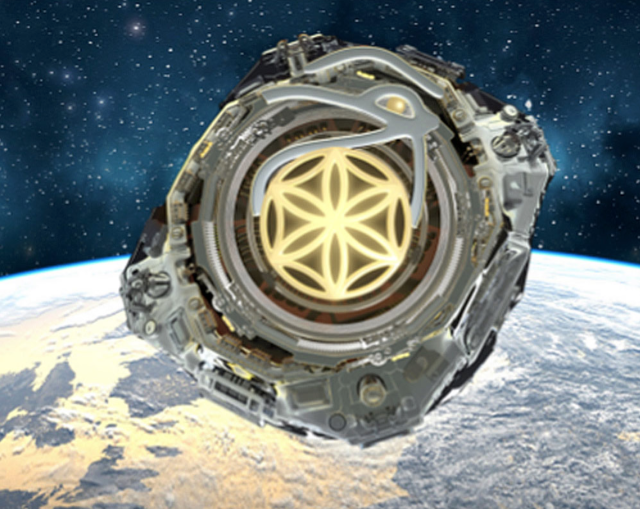
First step: to gain a foothold in space Asgardia
Today, a new nation was born. Possibly.
With a name derived from Norse mythology, Asgardia will start recruiting citizens immediately and intends to launch a satellite into space next year. It hopes to become the first state in space, with ambitions to join the UN.
In a fancy hotel in Paris, the world’s media gathered this morning to hear the ambitious plans for Asgardia, the brainchild of the Russian scientist and entrepreneur Igor Ashurbeyli. Few journalists might have bothered if it hadn’t been for the distinguished line-up of backers, including David Alexander at the Rice Space Institute in Houston, Texas, and former cosmonaut Dumitru-Dorin Prunariu—and Ashurbeyli recognizes that. “I wouldn’t be surprised if you all write that I am a crazy Russian scientist, but I have always gone against the grain, and had a lot of success.”
The idea of starting a nation in space is fraught with difficulties. The team will have to get past roadblocks in international law, and acquire sufficient technology and funding to put a physical entity into orbit. At the moment, the project relies on donations from its founding members.
“What we are setting up is a digital state, but we’re not going to put anyone in space just yet,” said Ashurbeyli. Instead, Asgardia will start off as a single satellite with its citizens scattered across Earth. Aspiring citizens can apply online. Once 100,000 people have signed up, the team will consult the UN on membership.
Exactly what Asgardia’s satellite will look like and where it will launch from has yet to be determined. “Today is just the announcement, but it will happen,” says Ashurbeyli.
Legal riddles
International law says that a state should have a permanent population and a territory associated with it, but according to Ashurbeyli there’s nothing to say how big that territory has to be, or whether it actually has to be on Earth. With the help of legal advisers, he is convinced the project can succeed. “We’ll start doing things informally, and then hopefully formal recognition will come later.”
There are still other difficulties to overcome. “I think that they’re going to have serious issues with Article 2 of the Outer Space Treaty, which says space cannot be owned by anyone,” says Chris Newman at the University of Sunderland, UK.
What’s more, if an accident happens in space involving a satellite, it’s the launching nation’s responsibility to pay for any damages. “I’m pretty sure if Asgardia was to have an accident, we would revert to the normal international treaties and the launch state would be sued.”
We will need to see a few more details to work out if there is a viable legal route for the project, Newman says. “But I do think that it’s a really good idea. We need to probe these treaties and start looking at their successors,” he says.
Today is not the first time that Ashurbeyli has come out with an ambitious scheme. Earlier this year, he declared the need for an international space platform to defend Earth from incoming objects. He proposed a Universal Robotic Battle Cosmic Platform, or URBOCOP, which would use on-board weapons to obliterate threatening objects such as asteroids or even missiles launched by one nation against another.
His vision is that URBOCOP and Asgardia will be the same project, with the space state serving a protective role for Earth. Again, the exact details are a little lacking, but the people involved make it hard to dismiss the project.
“Is it madness?” says Ashurbeyli. “Only time will tell.”

